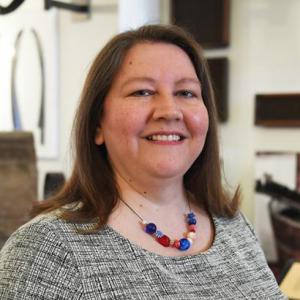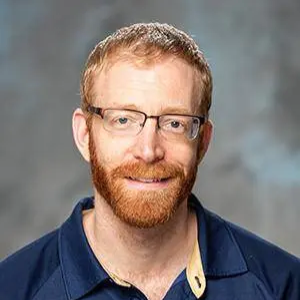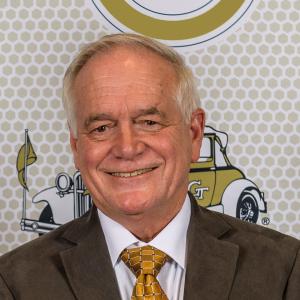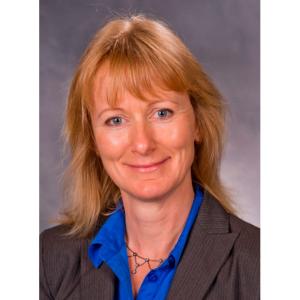Anna Doll

Anna Doll
Education Coordinator II
404-894-7840
IRI Connections:

404-894-7840

charles.brookshire@rbi.gatech.edu
404.545.1840

404-894-6672

virginia.howell@rbi.gatech.edu
404.894.5726

Suhas S. Jain is an Assistant Professor in the Woodruff School of Mechanical Engineering at Georgia Tech. He received his bachelor’s from NIT-Karnataka (India) in 2014, M.S. and Ph.D. from Stanford University in 2018 and 2022, respectively, all in mechanical engineering. Before coming to Georgia Tech, he was a postdoctoral fellow at the Center for Turbulence Research, Stanford University (2022-2023), a researcher at the Institute of Fluid Dynamics, Helmholtz-Zentrum Dresden-Rossendorf, Germany (2014-2015), and a project assistant at the Indian Institute of Science (2015-2016).
His research interests include computational modeling of fluid flows (multiphase flows; turbulent flows; compressible flows; and fluid-structure interaction) with a current focus on modeling atomization, sprays, and phase change for propulsion applications; ice accretion and aerodynamics for sustainable energy and aerospace design; and air-sea interaction modeling for understanding climate change; and modeling of fluid-solid and solid-solid systems for biomedical and high-speed applications. Through the integration of numerical modeling, high-performance computing, and data-driven approaches, Suhas and his group aim to address key challenges in these areas.

Joseph K. Scott is an associate professor in the School of Chemical and Biomolecular Engineering at the Georgia Institute of Technology. He received his BS from Wayne State Univ. and his MS and PhD from the Massachusetts Institute of Technology (MIT), all in chemical engineering. His honors include the 2012 Best Paper Award from the Journal of Global Optimization, the 2016 W. David Smith, Jr. Award from the Computing and Systems Technology Div. of AIChE, the 2014–2016 Automatica Paper Prize from the International Federation of Automatic Control, and the 2016 Air Force Young Investigator Research Program Award. His research interests include process modeling and simulation, dynamic systems, process control, and optimization theory and algorithms.

Jake D. Soper is an Associate Professor in the School of Chemistry and Biochemistry at the Georgia Institute of Technology. Prof. Soper’s research program is a hybrid of organometallic and inorganic coordination chemistry, at the forefront of an emerging area that uses redox-active ligand complexes for redox control in bond activation and functionalization reactions. His research focuses on the development of new homogeneous catalysts for selective transformations of small molecules, with particular emphasis on multielectron reactions relevant to organic synthesis and energy conversion and storage. Recent research accomplishments include the rational design of Earth-abundant metal catalysts to functionally mimic palladium in coupling catalysis cycles and the demonstration of redox-active ligand-meditated radical control in catalytic dioxygen activation and oxygen atom transfer reactions. This research has appeared in top peer-reviewed chemistry journals, including the Journal of the American Chemical Society and Inorganic Chemistry. Prof. Soper has also been an invited contributor to special issues of the European Journal of Inorganic Chemistry on Cooperative & Redox Non-Innocent Ligands in Directing Organometallic Chemistry and an Inorganic Chemistry Forum on Redox-Active Ligands, consisting of “papers from leading scientists on a multidisciplinary topic of growing interest. His recent development of redox-active ligand-mediated cobalt cross coupling catalysis was hailed as a “breakthrough in the field” in a 2011 Highlights feature in Angewandte Chemie International Edition.
Prof. Soper earned a B.S. degree in chemistry from Western Washington University in 1998 and a Ph.D. in inorganic chemistry from the University of Washington in 2003. His graduate research was performed under the direction of Prof. James M. Mayer. He was subsequently an NIH Ruth L. Kirchstein Postdoctoral Fellow in the laboratories of Prof. Daniel G. Nocera at the Massachusetts Institute of Technology. In 2009 his independent research was honored with an NSF CAREER award and a DARPA Young Faculty Award (YFA). During his tenure at Georgia Tech, he has been invited to speak at 30 universities and 12 conferences, including four Gordon Research Conferences. He was the corresponding organizer of a symposium on modern redox-active ligand chemistry that was presented at the International Chemical Congress of Pacific Basin Societies, Pacifichem 2010. He created and directs the Georgia Tech–Westlake HS Energy Challenge Program, for which he received the 2010 Georgia Tech Faculty Award for Academic Outreach.
jake.soper@chemistry.gatech.edu

After completing his Ph.D. studies in 1976, Professor Arduengo began his professional career at the DuPont company as a member of the research staff. Within a year, he accepted a position on the chemistry faculty at the University of Illinois. Dr. Arduengo returned to DuPont in 1984 to pursue applications for a previously unknown type of phosphorus compound (ADPO) that had been discovered by his research group at Illinois. In 1999 Professor Arduengo resumed his work in academe with research groups in Germany and the United States. He is Professor of the Practice in the School of Chemistry and Biochemistry at the Georgia Institute of Technology and Saxon Professor Emeritus in organic chemistry at the University of Alabama.
Professor Arduengo's research in the area of main group chemistry has produced many scientific "firsts," including the discovery of the first planar T-shaped bonding arrangement at phosphorus centers. Further work in this area at DuPont uncovered a previously unrecognized "edge inversion process" that operates at main group element centers and explains many apparent anomalies in main group element chemistry. Dr. Arduengo's interest in and study of compounds with unusual valence allowed him to synthesize the first stable crystalline carbene in 1990.
This carbene research not only represents a milestone in chemistry, but this science also has led to a rapidly increasing variety of commercial applications. "We're looking into uses in direct catalysis, for crosslinking polymers, and for transition metals catalysis in which carbenes can be incorporated as ligands." "We've added a new tool to the chemist's repertoire which we can take off the shelf and use at will to follow imaginative ideas in new directions."
Recently, the Arduengo Group research has joined the efforts of the Medicines for All Institute and participates in BARDA programs to develop modern, sustainable technology that facilitates repatriation of essential chemical and pharmaceutical manufacturing to U.S. shores.
His research earned him an Alexander von Humboldt senior research prize and the 1996 Gold Medal for 'Excellence in Main Group Chemistry' from the International Council on Main Group Chemistry. In 2007 Professor was elected Fellow in The American Association for the Advancement of Science.
Professor Arduengo trained as a traditional synthetic organic chemist, but has continually sought collaborations with experts in inorganic chemistry, polymer and material science, and recently through his carbene chemistry, bioorganic catalysis in order to broaden the scope and impact of his scientific interests. As a result, he is recognized in his own right as an expert such diverse areas. Work from the arduengo group has yielded approximately 150 publications and patents including articles intended to stimulate the interest of the young and lay-public in science.
He values teaching and quality science education, and even from his industrial positions, Professor Arduengo has actively maintained a strong commitment to the preparation of future generations of scientists by holding lectures and demonstrations for elementary and high school classes and his supervision of a dozen post-doctoral co-workers.
Professor Arduengo leads research groups in the United States and Germany and provides his co-workers with opportunities to study abroad. This bi-national research program fosters a broad training experience with industrial interactions in both Germany and the United States. Professor Arduengo is a strong advocate of international research and training experiences and regularly hosts U.S. undergraduate and graduate students in laboratories in Germany. During these semesters abroad students experience everyday life and culture in Germany in addition to conducting research in a foreign research environment. Professor Arduengo provides instruction in a variety of subjects in Chemistry as well as German language instruction so that students are able to stay on track toward their degrees with no lost time.
AJ.Arduengo@Chemistry.GaTech.edu
(404) 385-4986
Office Location:
MoSE 2100N

Dr. Ulrika Egertsdotter is a Principal Research Scientist at the Georgia Tech Renewable Bioproducts Institute.
Dr. Egertsdotter’s research is focused on understanding the regulatory mechanisms of plant development and growth in vitro. The research results are applied to support the development of enabling automated technologies for production of valuable plants for forestry, agriculture and horticultural applications.
Her group is working to develop cost-effective automated solutions for different steps of the in vitro clonal propagation process including bioreactors for multiplication of propagules and automation of harvesting and deployment steps. The use of biodegradable materials for plant growth and deployment are part of her research portfolio.
Sustainable production of plants for generating renewable plant-based biomaterials and energy as well as CO2 capture, is based on clonal propagation of superior plants where in vitro propagation technologies are the most suitable for automation enabling cost-effective scale-up production for various applications.
Research focus areas:
• Plant development and growth
• Plant propagation methods
• In vitro propagation by bioreactors
• Automation of plant propagation, harvest and planting
• Biodegradable planting materials
• Enhanced plant-based CO2 capture
ulrika.egertsdotter@rbi.gatech.edu
404.894.0363

The Gutekunst Lab is interested in pushing the limits of complexity in macromolecular systems using innovative concepts from synthetic organic chemistry.
Specific projects in the lab will explore the design of novel monomers for the construction of functional polyamides, the development of small molecule reagents for the dynamic modulation of branched polymer architectures, and the investigation of new concepts for creating covalent bonds in challenging contexts. Each of these research projects will enable the generation of new functional materials with structures or assemblies that were previously inaccessible for study.
Prospective students will obtain extensive training in synthetic organic chemistry, as well as polymer synthesis and characterization.
404-894-4675
Office Location:
MoSE 1100Q